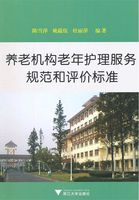"I thought that a few days spent at the bedside of Miss Grey in the society of so renowned and cultured a gentleman as her father would disabuse you of these damaging suspicions."
"I don't wonder that you thought so," I burst out. "You would think so all the more, if you knew how kind he can be and what solicitude he shows for all about him. But I can not get over the facts. They all point, it seems to me, straight in one direction."
"All? You heard what was said in this room--I saw it in your eye--how the man, who surprised the steward in his own room last night, heard him talking of love and death in connection with Mrs. Fairbrother. 'To kiss what I hate! It is almost as bad as to kill what I love'--he said something like that."
"Yes, I heard that. But did he mean that he had been her actual slayer? Could you convict him on those words?"
"Well, we shall find out. Then, as to Wellgood's part in the little business, you choose to consider that it took place at the time the stone fell from Mr. Grey's hand. What proof have you that the substitution you believe in was not made by him? He could easily have done it while crossing the room to Mr. Grey's side."
"Inspector!" Then hotly, as the absurdity of the suggestion struck me with full force: "He do this! A waiter, or as you think, Mr. Fairbrother's steward, to be provided with so hard-to-come-by an article as this counterpart of a great stone?
Isn't that almost as incredible a supposition as any I have myself presumed to advance?"
"Possibly, but the affair is full of incredibilities, the greatest of which, to my mind, is the persistence with which you, a kind-hearted enough little woman, persevere in ascribing the deepest guilt to one you profess to admire and certainly would be glad to find innocent of any complicity with a great crime."
I felt that I must justify myself.
"Mr. Durand has had no such consideration shown him," said I.
"I know, my child, I know; but the cases differ. Wouldn't it be well for you to see this and be satisfied with the turn which things have taken, without continuing to insist upon involving Mr. Grey in your suspicions?"
A smile took off the edge of this rebuke, yet I felt it keenly; and only the confidence I had in his fairness as a man and public official enabled me to say:
"But I am talking quite confidentially. And you have been so good to me, so willing to listen to all I had to say, that I can not help but speak my whole mind. It is my only safety valve.
Remember how I have to sit in the presence of this man with my thoughts all choked up. It is killing me. But I think I should go back content if you will listen to one more suggestion I have to make. It is my last."
"Say it I am nothing if not indulgent."
He had spoken the word. Indulgent, that was it. He let me speak, probably had let me speak from the first, from pure kindness. He did not believe one little bit in my good sense or logic. But I was not to be deterred. I would empty my mind of the ugly thing that lay there. I would leave there no miserable dregs of doubt to ferment and work their evil way with me in the dead watches of the night, which I had yet to face. So I took him at his word.
"I only want to ask this. In case Sears is innocent of the crime, who wrote the warning and where did the assassin get the stiletto with the Grey arms chased into its handle? And the diamond? Still the diamond! You hint that he stole that, too. That with some idea of its proving useful to him on this gala occasion, he had provided himself with an imitation stone, setting and all,--he who has never shown, so far as we have heard, any interest in Mrs. Fairbrother's diamond, only in Mrs. Fairbrother herself. If Wellgood is Sears and Sears the medium by which the false stone was exchanged for the real, then he made this exchange in Mr.
Grey's interests and not his own. But I don't believe he had anything to do with it. I think everything goes to show that the exchange was made by Mr. Grey himself."
"A second Daniel," muttered the inspector lightly. "Go on, little lawyer!" But for all this attempt at banter on his part, I imagined that I saw the beginning of a very natural anxiety to close the conversation. I therefore hastened with what I had yet to say, cutting my words short and almost stammering in my eagerness.
"Remember the perfection of that imitation stone, a copy so exact that it extends to the setting. That shows plan-- forgive me if I repeat myself--preparation, a knowledge of stones, a particular knowledge of this one. Mr. Fairbrother's steward may have had the knowledge, but he would have been a fool to have used his knowledge to secure for himself a valuable he could never have found a purchaser for in any market. But a fancier--one who has his pleasure in the mere possession of a unique and invaluable gem--ah! that is different! He might risk a crime--history tells us of several."
Here I paused to take breath, which gave the inspector chance to say:















